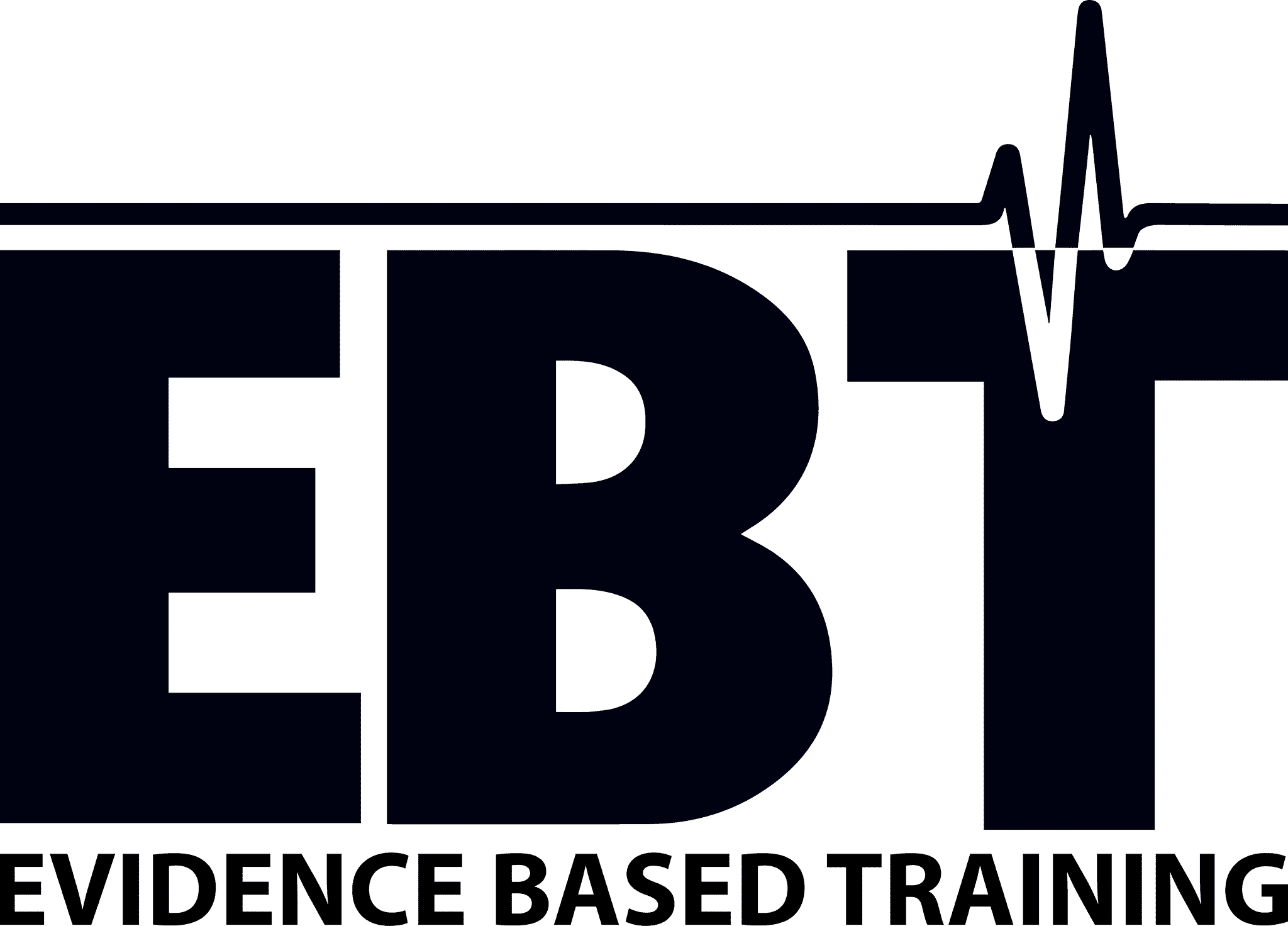The most studied supplement in history but there are still many doubts regarding creatine. Let’s see what recent scientific studies have to say.
Take Home Messages
- Creatine is naturally found in the human body
- Creatine helps the body produce more energy
- Creatine can help you gain muscle and strength
- You can load creatine with (5 g 4x/day for 5-7 days), then 3-5 g/day, or just take 3-5 g/day from the start– the long-term effect is the same
- Creatine is generally safe unless you have a pre-existing kidney or liver condition
- Respect the maximum dose above, otherwise you’ll experience gastro-intestinal distress and other complications
- You should do a routine blood test and then consult with your doctor about creatine supplementation
- Read the full article to find out more about creatine and secondary benefits
What is Creatine?
Creatine is found naturally in muscle cells and in other organs. It can help you gain muscle, enhance, strength, and improve your workout performance. Creatine can be produced from two amino acids: glycine and arginine. Thus creatine isn’t something that your body hasn’t met before.
Creatine in Foods
The quantity of creatine in your body can be influenced by meat intake, exercise, muscle mass, and hormone levels (testosterone). (1) Creatine isn’t stored not only in your muscles, but laso your brain, liver and kidneys.
Your stores of phosphocreatine (a form of stored energy in the cells) help your body produce more of a high-energy molecule called ATP. ATP is the body’s energy currency. Supplementing with creatine increases these stores.
The most common and well-researched supplement form is called creatine monohydrate. Many other forms are available, some of which are promoted as better. Studies show no benefits of them compared to creatine monohydrate which is also cheaper and therefore the best solution.
How Does Creatine Work?
Creatine increases the phosphocreatine stores in your muscles, used to produce more ATP which means more energy for your heavy lifting.
Creatine can help you in a lot more ways than just an energy boost.
It can:
- Improve cell signaling which means that you can recover better and faster (2)
- Raise your anabolic hormones levels (3,4,5)
- Increase the level of cell hydration (6)
- Reduce protein breakdown (7)
Regarding muscle gain, creatine can help with that too. A large review of supplements stated that creatine is the singlemost beneficial supplement for mass gain. (8)
A study targeting older adults who supplemented with creatine for 14 weeks concluded that there was a statistically significant improvement in leg strength and also regarding muscle mass. (9)
Creatine for Strength
Maybe gaining muscle isn’t your main goal, and you want to be stronger or perform better. Creatine helps here too. Usually, your ATP levels deplete in less than 15 seconds if you train high-intensity but when you take creatine, the ATP levels increase thus you can train at your highest level longer. If your body produces more ATP then you have more power.
One review found that adding creatine in the lifting program of the participants increased their strength by 8%, their performance by 14% and 1RM bench press by 43% compared to training alone. (10)
How to Take Creatine?
Take 3-5 grams per day but it will take around 3-4 weeks to maximize your stores (11). There is a lot of arguing on this question in the fitness industry. Should you consider a loading phase? Should you take 3-5 grams per day? Should you take creatine after workout or before? Should you take it if you have a rest day? These are common questions that I hear a lot in the gym and also on the internet. Let’s try to answer these questions from a scientific point of view.
Creatine Dosage
First things first: what dose?
The loading phase can be defined as taking around 20 grams per day for 5-7 days, the best way to take this would be 5 grams four times during the day. After these 5-7 days you can take 3-5 grams per day. (11). During creatine supplementation, I recommend to drink more water than usual and stay hydrated throughout the day. Creatine has an anabolic effect of on muscle synthesis, a process which sucks more water into your muscle cells. This can theoretically lead to less water in the space outside the cell, which is why it is recommended to drink more water when taking creatine. (26)
Creatine Loading Phase
The loading phase can help your creatine stores maximize faster. This is not necessary if you want to boost the total creatine levels in a slower manner. In fact, lower doses of creatine can help you reach the same effect – it may just take longer. Studies show that in 28 days of supplementing with 3 g of creatine daily can lead to the same effect of ingesting 20 g of creatine for 6 days. (26)
When to Take Creatine?
When to take creatine is still a common problem. Creatine is considered a very effective supplement no matter the time you take it: preworkout or postworkout. Some studies suggest taking creatine post-workout in order to have greater muscle benefits. (12) So if your goal is to be on point with everything then you can consider taking creatine post-workout. If not take it how it suits you best.
Creatine on Rest days
On rest days there are some benefits if you take creatine with food. This doesn’t mean that you have to eat in excess only to take creatine in the morning or the evening. You can have a regular meal and take creatine alongside. Some studies show benefits if you have carbs and protein in the meal because they help to increase the extent to which your body absorbs creatine. (13, 14)
Secondary Benefits of Creatine
Surprisingly, creatine doesn’t only help your gym performance but it has some other benefits for your brain and liver, especially for vegetarians and elderly.
One of these benefits is its impact on the brain. The brain stores phosphocreatine and uses a lot of ATP for its functions. (15) Having a creatine deficiency severely affects your brain. Researchers suggest that lack of creatine is an important factor in the evolution of brain pathologies like Parkinson’s disease, Huntington’s disease, Alzheimer’s disease, epilepsy, memory conditions, etc. (16, 17 ). This is still a new topic and scientists don’t have a strong correlation between them because most of the studies were performed on rats and mice.
Vegetarians and Creatine
What is interesting is that vegetarians have low creatine stores because meat has the most creatine levels. In this study there was a 50% improvement regarding a memory test and 20% in intelligence test scores after they supplemented with creatine. (15).
Although creatine supplementation can be useful for elderly people, for healthy adults it may not bring any added benefits. (18)
There are some other benefits stated in research but they are not fully confirmed.
- Creatine supplementation can help treat non-alcoholic fatty liver disease (19)
- Improve muscle function and quality of life in older people (20)
Side-Effects of Creatine
Stomach issues and hair loss are potenital side effects. I think that this is one of the most ”Googled” issues aroud creatine. This supplement has been around for many, many years and scientists didn’t neglect it. There are hundreds of studies on creatine efficiency, safety, risks and side-effects.
The most common side-effects of creatine that show up after a Google search are muscle cramping, kidney issues, liver issues, dehydration, gastrointestinal problems and weight gain. Some of these like liver and kidney issues seem to be true because these two organs play an important role in creatine production and clearance.
Is Creatine bad for Your Kidneys?
One study showed that creatine does NOT affect a healthy liver or kidney if you respect the dosage and if you don’t have a pre-existent condition. (21) In cases you take high doses of creatine bloodwork can show high creatinine levels (27) but that is absolutely normal. Creatinine is the metabolism product of phosphocreatine. Although, I suggest you should check your kidney functions including creatinine before you take creatine and always mention if you are currently taking creatine to your doctor. (27) At maintenance dose, creatinine levels are usually not affected. (28).
Evidence vs. Fake News
The other side-effects I mentioned earlier seem to be “fake news” because this study found that the incidence of those effects was reduced when the participants started taking creatine. (22)
Dehydration as a side-effect is a myth. In fact, creatine IMPOVES hydration levels and even improves the body’s thermoregulatory response to exercise. (23) So it seems that creatine has a protective effect.
Even if I talked about some of the side-effects and proved them wrong you should consider some counter-indications and precautions.
Consult Your Doctor
If you have a pre-existent kidney or liver condition I strongly advise you to consult your doctor about creatine. Even if you don’t have such conditions I strongly advise you to do a routine blood test and after that consider creatine supplementation. It can be quite common to experience gastrointestinal problems especially if you take a large dose or it is not dissolved completely or take it with coffee. (24)
Creatine and Hair Loss
Creatine was associated with hair loss. There isn’t much to indicate that creatine supplementation actually causes hair loss. In fact, much of the evidence is anecdotal. This means that it comes from people’s personal experiences.
A small study in college-age rugby players found increased levels of a hormone associated with hair loss following three weeks of a creatine supplementation. This hormone is called dihydrotestosterone (DHT). DHT is derived from testosterone but it is more potent. (25) I consider important that the researchers didn’t actually observe hair loss so this is just speculation. Further studies may be needed to confirm this especially if you are genetically predisposed to hair loss.
Summary:
After all these statements I can say that:
- Creatine is still the best supplement that you can use in order to boost your fitness performance
- It is safe excepting the cases mentioned above
- It is studied a lot and still the best form to use is the monohydrate one
- It has a lot of secondary benefits and maybe future studies will find others
- The dosage should be respected no matter if you use the loading phase or not
- Talk to your doctor before supplementation
This is our recommended creatine supplements (affiliate links)
Creatine Monohydrate (Swedish)
Article written by Vlad Radulescu
References:
2. Dietary creatine monohydrate supplementation increases satellite cell mitotic activity during compensatory hypertrophy. Dangott B, Schultz E, Mozdziak PE. https://www.ncbi.nlm.nih.gov/pubmed/10683092
3. Increased IGF mRNA in human skeletal muscle after creatine supplementation. Deldicque L1, Louis M, Theisen D, Nielens H, Dehoux M, Thissen JP, Rennie MJ, Francaux M. https://www.ncbi.nlm.nih.gov/pubmed/15870625
4. Effect of creatine supplementation and resistance-exercise training on muscle insulin-like growth factor in young adults. Burke DG, Candow DG, Chilibeck PD, MacNeil LG, Roy BD, Tarnopolsky MA, Ziegenfuss T. https://www.ncbi.nlm.nih.gov/pubmed/18708688
5. Regulation of muscle mass by growth hormone and IGF-I. C P Velloso. https://www.ncbi.nlm.nih.gov/pmc/articles/PMC2439518/
6. Cellular hydration state: an important determinant of protein catabolism in health and disease. Häussinger D, Roth E, Lang F, Gerok W.https://www.ncbi.nlm.nih.gov/pubmed/8098459
7. Effects of acute creatine monohydrate supplementation on leucine kinetics and mixed-muscle protein synthesis. Parise G, Mihic S, MacLennan D, Yarasheski KE, Tarnopolsky MA. https://www.ncbi.nlm.nih.gov/pubmed/11509496
8. Effect of dietary supplements on lean mass and strength gains with resistance exercise: a meta-analysis. Nissen SL, Sharp RL. https://www.ncbi.nlm.nih.gov/pubmed/12433852
9. Creatine supplementation enhances isometric strength and body composition improvements following strength exercise training in older adults. Brose A, Parise G, Tarnopolsky MA.https://www.ncbi.nlm.nih.gov/pubmed/12560406
10. Effects of creatine supplementation and resistance training on muscle strength and weightlifting performance. Rawson ES, Volek JS. https://www.ncbi.nlm.nih.gov/pubmed/14636102
11. International Society of Sports Nutrition position stand: creatine supplementation and exercise. Thomas W Buford, Richard B Kreider, corresponding author Jeffrey R Stout, Mike Greenwood, Bill Campbell, Marie Spano, Tim Ziegenfuss, Hector Lopez, Jamie Landis, and Jose Antonio. https://www.ncbi.nlm.nih.gov/pmc/articles/PMC2048496/
12. Meta-Analysis: Timing of creatine supplementation and resistance training. S.C. Forbes, D. Candow https://www.researchgate.net/publication/324907599_Meta-Analysis_Timing_of_creatine_supplementation_and_resistance_training
13. Carbohydrate ingestion augments creatine retention during creatine feeding in humans. Green AL, Simpson EJ, Littlewood JJ, Macdonald IA, Greenhaff PL. https://www.ncbi.nlm.nih.gov/pubmed/8899067
14. Optimization of insulin-mediated creatine retention during creatine feeding in humans. Pittas G, Hazell MD, Simpson EJ, Greenhaff PL. https://www.ncbi.nlm.nih.gov/pubmed/20035494
15. Oral creatine monohydrate supplementation improves brain performance: a double-blind, placebo-controlled, cross-over trial. Caroline Rae, Alison L Digney, Sally R McEwan, and Timothy C Bates. https://www.ncbi.nlm.nih.gov/pmc/articles/PMC1691485/
16. The Creatine Kinase/Creatine Connection to Alzheimer’s Disease: CK Inactivation, APP-CK Complexes, and Focal Creatine Deposits. https://www.ncbi.nlm.nih.gov/pmc/articles/PMC1510941/
17. Creatine supplementation and cognitive performance in elderly individuals. McMorris T, Mielcarz G, Harris RC, Swain JP, Howard A. https://www.ncbi.nlm.nih.gov/pubmed/17828627
19. Creatine supplementation as a possible new therapeutic approach for fatty liver disease: early findings. Deminice R, de Castro GS, Brosnan ME, Brosnan JT. https://www.ncbi.nlm.nih.gov/pubmed/26832170
20. Creatine supplementation enhances isometric strength and body composition improvements following strength exercise training in older adults. Brose A, Parise G, Tarnopolsky MA. https://www.ncbi.nlm.nih.gov/pubmed/12560406
21. Studies on the safety of creatine supplementation. Kim HJ, Kim CK, Carpentier A, Poortmans JR. https://www.ncbi.nlm.nih.gov/pubmed/21399917
22. Cramping and Injury Incidence in Collegiate Football Players Are Reduced by Creatine Supplementation. Greenwood M, Kreider RB, Greenwood L, Byars A. https://www.ncbi.nlm.nih.gov/pubmed/14608430?dopt=Abstract
23. International Society of Sports Nutrition position stand: safety and efficacy of creatine supplementation in exercise, sport, and medicine. Richard B. Kreider, Douglas S. Kalman, Jose Antonio, Tim N. Ziegenfuss, Robert Wildman, Rick Collins, Darren G. Candow, Susan M. leiner, Anthony L. Almada & Hector L. Lopez. https://jissn.biomedcentral.com/articles/10.1186/s12970-017-0173-z
24. Gastrointestinal distress after creatine supplementation in athletes: are side effects dose dependent? Ostojic SM, Ahmetovic Z. https://www.ncbi.nlm.nih.gov/pubmed/18373286
25. Three weeks of creatine monohydrate supplementation affects dihydrotestosterone to testosterone ratio in college-aged rugby players. van der Merwe J, Brooks NE, Myburgh KH. https://www.ncbi.nlm.nih.gov/pubmed/19741313
26. Exercise Physiology Seventh Edition – Nutrition, Energy and Human Performance; William D. Mcardle, Frank I. Katch, Victor L. Katch
27. Williamson L, New D. How the use of creatine supplements can elevate serum creatinine in the absence of underlying kidney pathology. BMJ Case Rep. 2014;2014:bcr2014204754. Published 2014 Sep 19. doi:10.1136/bcr-2014-204754
28. de Souza E Silva A, Pertille A, Reis Barbosa CG, et al. Effects of Creatine Supplementation on Renal Function: A Systematic Review and Meta-Analysis. J Ren Nutr. 2019;29(6):480–489. doi:10.1053/j.jrn.2019.05.004.








